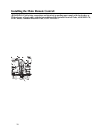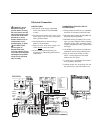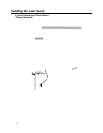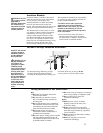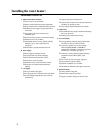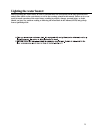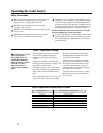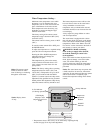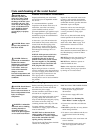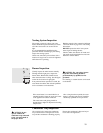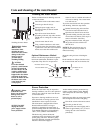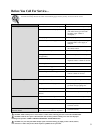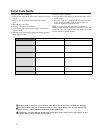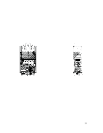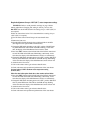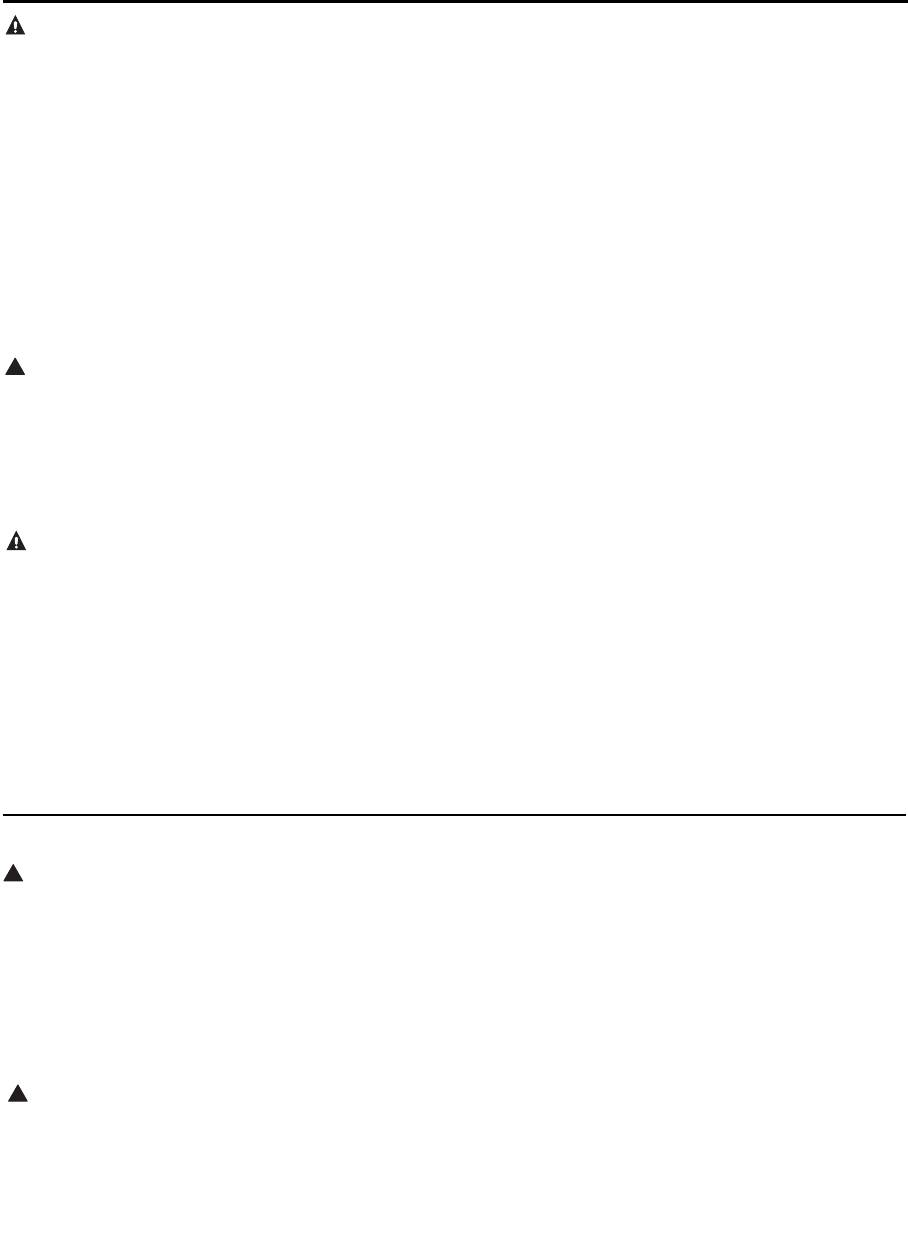
Care and cleaning of the water heater:
Routine Preventative Maintenance
Properly maintained, your water heater
will provide years of dependable trouble-
free service.
It is recommended that a periodic
inspection of the burner, relief valve, air
intake filter, water filter and venting
system should be made by service
personnel qualified in gas appliance repair.
It is suggested that a routine preventive
maintenance program be established and
followed by the user.
At least once a year, lift and release the
lever handle on the pressure relief valve,
located in the hot outlet piping of the
water heater, to make certain the valve
operates freely. Allow several gallons to
flush through the discharge line to an
open drain.
NOTICE: If the pressure relief valve
on the hot water heater discharges
periodically, this may be due to a
problem in the water system. Contact
the water supplier or your plumbing
contractor on how to correct this. DO
NOT plug the relief valve outlet.
Rapid closing of faucets or solenoid
valves in automatic water using appliances
can cause a banging noise heard in a water
pipe. Strategically located risers in the
water pipe system or water hammer
arresting devices can be used to minimize
the problem.
Inspect the area around the water heater
to ensure a safe operating environment.
Keep appliance area clear and free from
combustible materials, gasoline and other
flammable vapors and liquids.
Ensure the unit has not been damaged.
If damage or denting is present, contact
a service personnel to verify proper
operation.
Check for any abnormal sounds during
normal operation of the water heater.
All piping should be checked for gas
and/or water leaks. Refer to page 18 of
this manual for instructions on leak
testing.
The air intake and cold water supply
filters should be cleaned monthly. Refer to
the “Housekeeping” section for further
information.
DO NOT operate the water heater if you
feel something is wrong with the unit.
DO NOT allow children to operate or
otherwise handle the unit.
Notice: After inspection, maintenance
and/or cleaning, ensure proper operation
by turning on a hot water faucet.
Housekeeping
Before performing Housekeeping tasks to
this water heater, turn the unit off and
disconnect the power supply.
Vacuum around the water heater for dust,
dirt and lint on a regular basis.
Clean the water heater and remote control
by using a damp soft cloth with a few
drops of mild detergent and gently wiping
the surfaces of the unit. Wipe any
remaining moisture with a dry soft cloth.
To ensure sufficient ventilation and
combustion air supply, proper clearances
must be maintained.
DO NOT block or obstruct the air
intake opening of the water heater.
A minimum of 12” (30 cm) is required
between this combustion air inlet
opening and any obstruction.
The Air Intake and Water filters should be
cleaned on a monthly basis.
HOW TO CLEAN THE WATER FILTER:
● Make sure the unit is OFF and the
electrical power supply has been
disconnected.
● Turn the water supply OFF to the
heater.
● Drain heater. See “Draining The
Water Heater” section on page 30.
● Unscrew the water filter, and slide the
filter out.
● DO NOT tap the filter as it may deform
and/or damage the filter.
● To remove severe sediment and dirt, use
a soft brush and wash with running
water.
● Return the filter to the water heater and
screw in the filter.
● Turn the electrical power supply and
cold water supply ON to the water
heater.
DANGER: Before
manually operating the
relief valve, make certain
no one will be exposed to
the danger of the hot water
released by the valve. The
water may be hot enough to
create a scald hazard. The
water should be released
into a suitable drain to
prevent injury or property
damage.
DANGER: Combustible
materials, such as clothing,
cleaning materials or
flammable liquids, etc.,
must not be placed against
or next to the water heater.
!
DANGER: Failure to
perform the recommended
Routine Preventative
Maintenance can harm the
proper operation of this
water heater, which can
cause carbon monoxide
dangers, excessive
hot water temperatures and
other potentially hazardous
conditions.
DANGER: Hotter water
increases the potential for
Hot Water Scalds.
!
DANGER: Shock Hazard
Make sure the electrical
power to the water heater is
off to avoid potential serious
injury or damage to
components.
!
28



